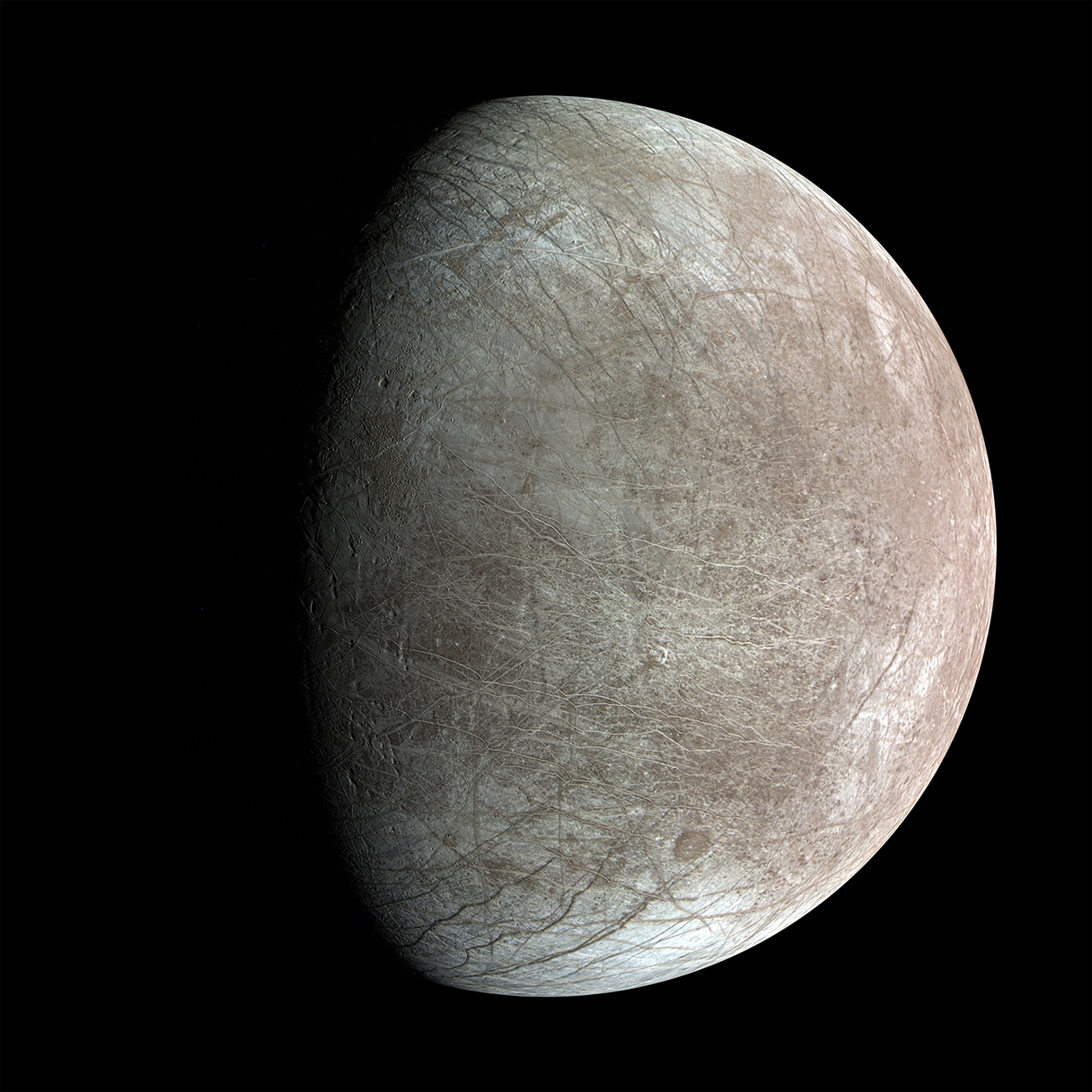
Surprisingly thick ice on Jupiter’s moon Europa complicates hunt for life
By Paul Voosen
Jupiter’s moon Europa has long been a prime candidate in the search for extraterrestrial life, thanks to its hidden ocean beneath an icy crust. But new data from NASA’s Juno spacecraft suggests that crust is a daunting 35 kilometres thick—much thicker than earlier estimates. This could make it harder for the ocean below to interact with the surface, limiting chemical reactions and reducing the potential for life. The findings complicate upcoming missions like the $5-billion Europa Clipper, which aims to explore Europa’s icy shell and the ocean below. However, questions remain about the accuracy of these measurements, and future missions could shed more light.











